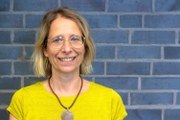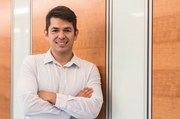Computer Science (Master of Science)
The technological developments of the past 20 years have changed our daily lives. Smartphones, navigation devices, search engines or data streaming have become indispensable in our everyday lives. Self-directed robots, autonomous vehicles, computers that learn to understand images or mind-controlled prostheses are our future.
We teach you the practical and theoretical skills you need to work on these and other innovations. The international master’s degree program in computer science is aimed at foreign and German students with a bachelor's degree in computer science or a similar subject. The curriculum is very flexible and offers many choices so that you can develop yourself individually and prepare for a career in science or business.
The Master program in Informatik / Computer Science in Freiburg offers you three options:
-
Open Curriculum: A degree "Master of Science Informatik / Computer Science" with a self-directed, personalized course of study, where you can combine various topics from all areas of Computer Science such as algorithmics, data analysis, computer graphics, software and hardware development, machine learning or bioinformatics.
-
Specialization in Artificial Intelligence: A degree "Master of Science Informatik / Computer Science" with the additional qualification "Specialization Artificial Intelligence" where you can put a special focus on artificial intelligence, machine learning, deep learning, robotics, computer vision, computer graphics and neuroscience.
-
Specialization in Cyber-Physical Systems: A degree "Master of Science Informatik / Computer Science" with the additional qualification „Specialization Cyber-Physical Systems" where you can put a special focus on design, verification and analysis of hardware and software systems, programming languages, distributed or embedded systems, security and efficiency.
Prerequisites
- Bachelor's degree in computer science, math, or in a closely related field. Very good command of mathematics and theoretical computer science (e.g. differential equations, linear algebra, analysis, formal languages, formal grammars, Turing machines, decidability, complexity theory, logic, automata theory).
- English language proficiency level C1 (to find out which language certificates are accepted, please go to Application / English language proficiency).
Facts and Figures
| Scope: | 120 ECTS credit points |
| Standard program duration: | 4 semesters = 2 years |
| Language of instruction: | English |
|
Intakes: |
winter semester (October) or summer semester (April) |
Fees and Cost
German and EU nationals
Altogether 190 € per semester to be paid to the university. |
Non-EU nationals
Altogether 1690 € per semester to be paid to the university. |
| The living cost in Freiburg amounts to approximately 900-1000 € per month. | |
Application
| Application: |
Applications will be done electronically. Please register in the online application portal, enter your data and upload the following documents:
Please note that all additional documents have to be merged into one pdf document before you can upload them to the application portal. Undergraduate diploma and transcript of records: If you have completed your studies, but not yet received the bachelors diploma, the transcript of records has to show the total number of credit points, final grade and the remark "degree conferred" or "degree awarded". If not, please submit an additional confirmation letter from the university stating the total number of credit points, the final grade and that the degree has been conferred. English language proficiency: Please note: Incomplete applications will not be considered. Certificates issued in a language other than German or English must be accompanied with a translation by an authorised translator. The online application is not always intuitive. If you are unsure, follow the instructions for the online application. |
|
Admissions:
|
The admissions committee will verify whether you fulfill the special prerequisites specified in the admission regulations. This is a courtesy translation of the admission regulations. |
|
Application periods: |
April 15 - May 31 (non-EU nationals), April 15 - July 15 (EU nationals) for the winter semester. |
| Faculty affiliation: | Faculty of Engineering |
Curriculum
To obtain the Master's degree, students will complete
- seven lectures (either 1 advanced lecture + 6 specialization courses
or 2 advanced lectures + 5 specialization course) 42 ECTS credits
-
two seminars, 6 ECTS credits
-
one lab course, 6 ECTS credits
-
one study project, 18 ECTS credits
-
the thesis, 30 ECTS credits
In addition, they will obtain 18 ECTS credits in the so-called “Customized Course Selection” area which allows to take a look outside the box by completing some courses in subjects other than Computer Science.
For more information have a look at the list of the courses offered in other departments that can be selected in the "Customized Course Selection" area.
The following graphic summarizes the structure:
This study plan/curriculum for M.Sc. Informatik/Computer Science PO 2020 (PDF) offers more detailed information about the program structure.
Within this structure, students have got three different options:
- Open Curriculum: This is the most flexible option. Students can freely select their courses from the whole range offered by the Department of Computer Science as long as they fit into the above mentioned program structure.
- Specialization in Cyber-Physical Systems: Students who want to obtain a Master of Science degree in Computer Science with a specialization in Cyber-Physical Systems have to choose four of the above mentioned seven lectures as well as the study project and the master thesis from the field of Cyber-Physical Systems:
Lectures Specialization CPS - Vorlesungen Spezialisierung CPS (PDF) - Specialization in Artificial Intelligence: Students who want to obtain a Master of Science degree in Computer Science with a specialization in Artificial Intelligence have to choose four of the above mentioned seven lectures as well as the study project and the master thesis from the field of Artificial Intelligence:
Lectures Specialization AI - Vorlesungen Spezialisierung KI (PDF)
Possible occupational fields
Computer science is one of the most versatile study fields. There are hardly any life areas left, that do not involve any computing. Computer scientists can work for example in
- Software development
- Energy supply
- Media / entertainment industry
- Medicine or biotechnology
- Education
- Automotive industry
- Logistics
- Police
- Banking and finance
Syllabus and Examination Regulations
Please note: Only the latest versions are listed here. Older versions can be found in Module Handbooks and Exam Regulations under Studies and Teaching.
- Online version of the module handbook in HISinOne (Please note, loading might take some time)
-
Detailed PDF version of the module handbook (as of April 2025)
(Please note: the PDF version is updated only once per semester) - Exam and admission regulations (in German)
The web pages of the legal department contain all examination regulations. The latest version applies to you, i.e. the one without further explanation/restriction in brackets.
Students who started their studies before SS 2020 can find the respective information under Module Handbooks and Exam Regulations under Studies and Teaching. - Exam regulations (unofficial version in English - not legally binding)
Please check out our dates and deadlines for course registration or exam registration.
Contact Persons
Do you have any questions concerning the application and admission procedure? Please contact the program coordinator:
 |
Georges-Köhler-Allee 101 |
| Ms. Ursula Epe |
For questions pertaining to the curriculum, please contact the academic advisor:
 |
E-Mail: studienberatung@informatik.uni-freiburg.de Further contact information (telephone number, consulting hours, address) at |
| Ms. Martina Nopper |
Testimonial

"When I searched for options to study my Master’s in computer science, I found the University of Freiburg, which in this field is one of the most prestigious universities in Germany. Freiburg’s Department of Computer Science is renowned for winning several international robotic competitions, and yes, the same researchers who have won these competitions are the ones that teach the students in Freiburg."
Christian Herrera Salazar
Particularities about this study program
Flexible Curriculum
The master’s degree program in computer science has a very flexible curriculum. There is not a single course in the curriculum that the students have to take. Instead, students are always provided with several options from which they can freely choose. In this way, each student can build their study plan according to their individual interest.
Lecture Recordings
Many lectures are recorded and made available to students online so they can revisit and listen to the lecture once they have missed a class or when they are preparing for the exam..
Smart, Micro, Green – Engineering in Freiburg
Smart – stands for robots that act independently, for computers that learn to interpret images or algorithms that become faster and smarter. Simply put, smart stands for computer science.
Micro – is meant literally here. The tiniest technical systems emerge that inconspicuously take on complex tasks in everyday life, medicine and industry. Without even knowing it, you are constantly dealing with microsystems. They make our lives healthier, safer, more comfortable, more versatile and, to say the least, easier.
Green – Freiburg is known worldwide for being the Green City. Since 2015, the Faculty of Engineering has been active from an engineering perspective with its own department for sustainability research. How can renewable energy be generated, fed into the grid and stored? How do we develop materials and systems that are produced and used in an energy- and resource-efficient way and that can adapt optimally to difficult environmental conditions or disasters?
Studying engineering in Freiburg always means that you benefit from all three areas of research, no matter which area you choose. Smart, micro and green technologies are becoming more and more in demand - acquire the necessary competencies to solve the social and technical questions of the future as engineers and computer scientists!

